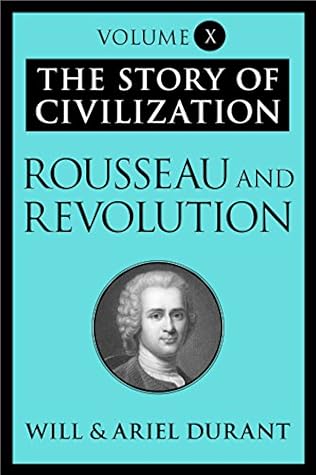Kindle Notes & Highlights
“that we must study the antique in order that we may learn to see nature.”
Sentiment is happier than sophistication, and not as shallow;
An artist must pay a price for symbolizing an age;
One dies only through an act of stupidity.’”
“All pain strikes deep,” she later wrote, “but pleasure is a bird of quick passage.”
“And you, Monsieur de Voltaire, the declared lover of Truth, tell me in good faith, have you found it? You combat and destroy errors, but what do you put in their place?”
“deliver me from my friends; I will take care of my enemies myself.”
He described himself as “ridiculous for not being dead.”
He held action to be a good remedy for philosophy and suicide.
“The best thing we can do on this earth is to cultivate it; all other experiments in physics are by comparison children’s play. Honor to those who sow the earth; woe to the miserable man—crowned or helmeted or tonsured—who troubles it!”
“Je deviens patriarche,” he wrote—“I am becoming a patriarch.”
“It is the triumph of reason to live well with those who have none.”
Voltaire was the greatest historian, as well as the greatest poet and dramatist, of his time.
True to his conception of history as being best when recording the advances of the human mind,
He contradicted himself in his seventy years of writing, but he was never obscure;
Sometimes there are too many flashes, too many strokes of wit; now and then the reader tires of the sparkle, and loses some darts of Voltaire’s agile mind. He realized that this excess of brilliance was a fault, like gems on a robe.
“Health and prosperity to the most malign and most seductive man of genius who has ever been or ever will be in this world”;
“For my part, I am consoled by having lived in the age of Voltaire; that suffices me.”
he repeatedly argued that more progress could be made through “enlightened” kings than by enthroning the unstable, unlettered, superstitious masses.
You must be economical in your youth, and you find yourself in your old age in possession of a capital that surprises you; and that is the time when fortune is most necessary to us.
“The spirit of property doubles a man’s strength.”
He referred to “the thinking portion of the human race—i.e., the hundred-thousandth part.”
In the long run, he thought, the only real liberation is education, the only real freedom is intelligence.
(The more enlightened men are, the more they will be free)
He insisted on distinguishing sin from crime, and ending the notion that the punishment of crime should pretend to avenge an insulted God.
It is the art of saying half of what you mean and leaving the rest to the imagination.
“I am like the little brooks—they are transparent because they are not deep.”
He feared boredom worse than death, and in a bored moment he maligned life as “either ennui or whipped cream.”
His printed lies would make a book; many were not printed, some were unprintable.
“One must show the truth to posterity with boldness, and to his contemporaries with circumspection. It is very hard to reconcile these two duties.”
And as we must feel our pains more keenly than our pleasures, so he took commendation in his stride but was “reduced to despair” by an adverse critique.
“I know how to hate,” he said, “because I know how to love.”
God be praised! I look upon the whole world as a farce which sometimes becomes tragic. All is the same at the end of the day, and all is still the same at the end of days.
regard to money, the same principles as for time: it was necessary, he said, to economize in order to be liberal.
He defined morality as “doing good to mankind”;
“The victorious nation never profits from the spoils of the conquered; it pays for everything; it suffers as much when its armies are successful as when they are defeated”;122 whoever wins, humanity loses.
It is only an abuse of life that makes life a problem to us.
Providence is universal, not particular: it watches over the whole, but leaves specific events to secondary causes and natural laws.
and posterity is always just.
feeling, passion, and romantic love received so detailed and eloquent an exposition and defense.
Voltaire thought in ideas and wrote with epigrams; Rousseau saw in pictures and composed with sensations.
“L’homme estné libre, et partout il est dans les fers” (Man is born free, and he is everywhere in chains).
“The larger the state, the less the liberty.”
“The social state is advantageous to men only when all have something and no one has too much.”
“True Christians are made to be slaves.”
Here Rousseau agreed with Diderot, anticipated Gibbon, and was for the moment more violently anti-Catholic than Voltaire.
“People accustomed to masters will not let mastery cease. … Mistaking liberty for unchained license, they are delivered by their revolutions into the hands of seducers who will only aggravate their chains.”
The book was an amalgam of Geneva and Sparta, of Calvin’s Institutes and Plato’s Laws.
We must allow for development: a man’s ideas are a function of his experience and his years; it is natural for a thinking person to be an individualist in youth—loving liberty and grasping for ideals—and a moderate in maturity, loving order and reconciled to the possible.
“All my ideas are consistent, but I cannot expound them all at once.”


